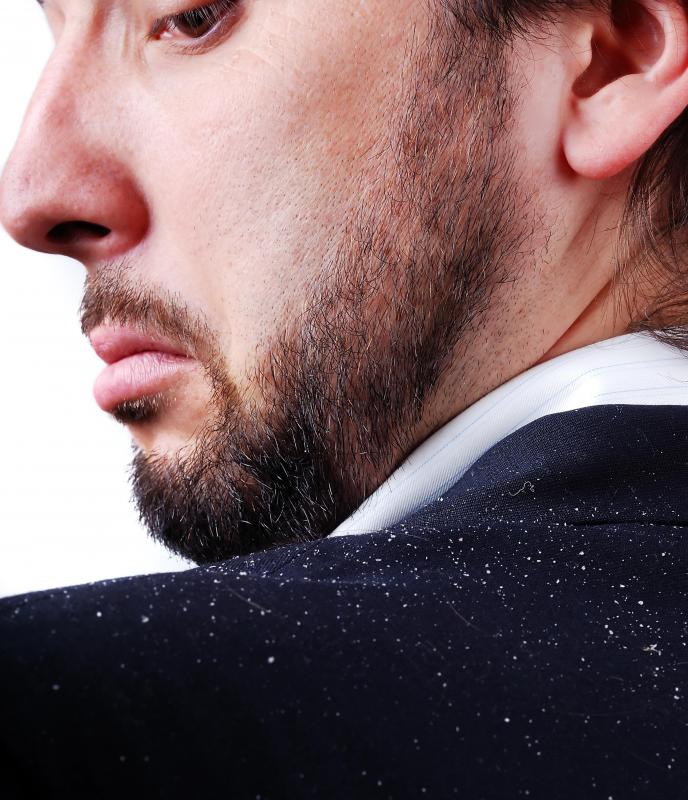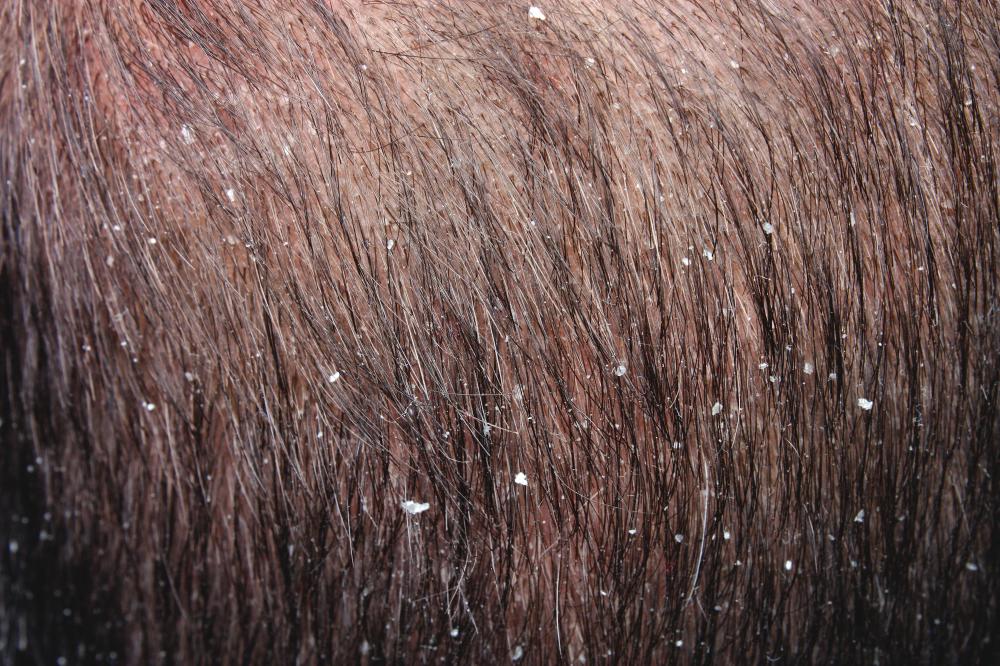At BeautyAnswered, we're committed to delivering accurate, trustworthy information. Our expert-authored content is rigorously fact-checked and sourced from credible authorities. Discover how we uphold the highest standards in providing you with reliable knowledge.
What Is Winter Dandruff?
Winter dandruff is a type of dandruff that typically begins or gets worse during the winter months. Symptoms of this type of dandruff can include an itchy scalp and visible white flakes of dry dead skin. This is usually caused by the cold dry air outside, as well as the warm dry air indoors, which is caused by many heating systems. Special shampoos are usually very effective for treating dandruff. Humidifiers can also be used to add moisture to the air.
Dandruff is a condition that affects the scalp. It can be caused by an excessive amount of oil, micro-organisms, or a dry scalp. Winter dandruff typically only occurs during cold winter months, and it is usually the result of a dry scalp. Dandruff symptoms may appear only during these months, or they may become worse during these months.

The symptoms of winter dandruff are typically the same as symptoms other types of dandruff. Small white flakes of dead skin are usually visible. These are typically more visible when they fall onto the shoulders of a dark colored shirt. The scalp may also be very itchy.
Dandruff can occur during cold weather for a couple of reasons. First, many people wear hats more often during the winter. Hats impede air circulation around the scalp, which can dry out the skin or cause excessive oil build up on the scalp.

Indoor heating systems also cause winter dandruff. Most indoor heaters will cause the air in a house to become very dry. One can monitor humidity in a house with a hygrometer. Generally, an indoor humidity level between 30 and 50 percent is considered acceptable. If the moisture content of the air drops below 30 percent, it can exacerbate dry skin.
Individuals suffering from winter dandruff may find some relief by using a humidifier. This is an appliance that adds moisture to the air. If a humidifier is unavailable, a pot of water can be boiled on a stove to raise the humidity in a room.

Dandruff shampoo can also be used to combat winter dandruff. Individuals trying to get rid of dandruff should wash their hair regularly with these types of shampoos. After a couple of weeks, if one dandruff shampoo is not working, another dandruff shampoo with a different active ingredient should be tried. Some common dandruff shampoo ingredients include selenium sulfide, zinc pyrithione, salicylic acid, and coal tar.
AS FEATURED ON:
AS FEATURED ON:

















Discussion Comments
My winter dandruff has lessened since I switched to an organic shampoo with natural ingredients. I think the chemicals in regular shampoo are harder on our scalp than we realize.
@ddljohn-- I think that dandruff occurs from an imbalance. So it could be dryness or oiliness that's causing it. Sometimes it also has to do with the immune system because yeast or fungi can cause dandruff.
I think winter dandruff is kind of the exception, especially if you wash your scalp and face on a regular basis. In winter, cold weather causes extra dryness and many people with dry skin have problems around this time of the year.
My advice, as a long sufferer of winter dandruff, is to keep your scalp and skin moisturized. If your shampoo is particularly drying, switch to something else. Use a simple moisturizer for your face. When you go out in the cold, cover your head and face and stay warm. Also, stay away from stress, eat well and stay hydrated. These factors make a huge difference in the long run.
I suffer from winter dandruff every year, not just on my scalp but also on my face. It's very bothersome and embarrassing.
One doctor told me that it's because I have an oily skin and scalp. Another doctor said that it's due to cold and dryness. I have no idea which is true. All I know is that medicated shampoos and lotions don't work too well. They work for a short period of time and then become ineffective.
Post your comments